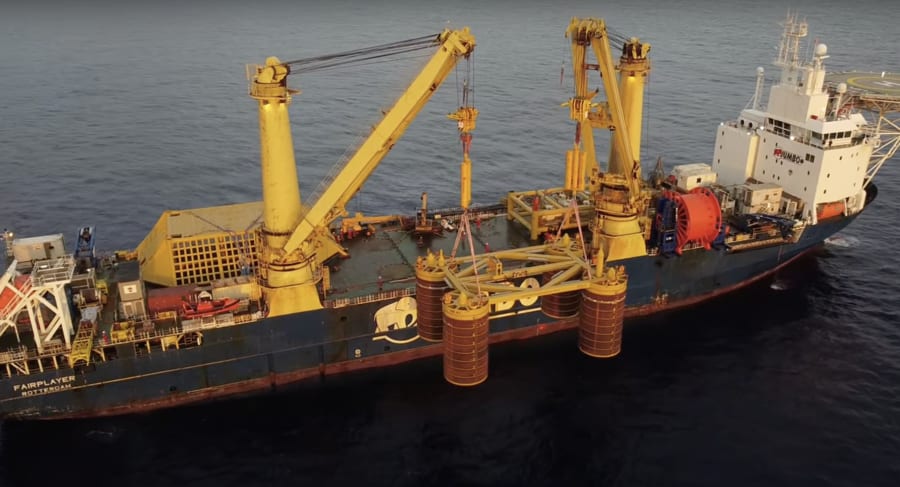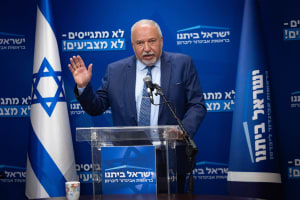Israel, Lebanon to determine maritime border ownership this month
London’s Energean PLC dives into Karish gas production

London-based energy company Energean PLC plans to begin production at Israel’s Karish offshore gas field by the time Israel and Lebanon are expected to sign an agreement over their shared maritime border.
As American mediator Amos Hochstein reportedly received a positive response from Israel regarding “the proposals on the table,” Russian media quoted a senior Lebanese official saying, “It seems that the matter is about to be closed.”
At the same time, a United States official told Israel’s financial newspaper Globes, “There are elements in the outline plan that received good responses from both sides, but all disputes must be resolved more precisely, leaving no room for conflicting interpretations.”
The two countries began discussions over their maritime borders following Israel’s installation of a gas rig in the Karish gas field in the eastern Mediterranean. Prior to the discovery of the gas field, Lebanon made no claims to the territory.
Against the background of the Karish ownership question, the Lebanon-based, Iranian-proxy terrorist group Hezbollah threatened to attack the Israeli drilling rig.
On July 2, Hezbollah launched three unarmed Iranian unmanned aerial vehicles into the area, a move that was “about establishing the important role of Hezbollah as ‘defender of Lebanon’ to the Lebanese,” wrote The Institute for National Security Studies in Israel. In part, Hezbollah wanted Lebanese support, in the face of rising opposition in Lebanon to the group’s continued preservation and participation in government, the INSS said.
Israel destroyed all four drones Hezbollah launched into the Karish field; the three in July and one on June 29. Iran has broadcasted its support for Lebanon’s maritime border rights.
The Sidon (or “Qana”) gas field, where Lebanon is carrying out test drilling, passes through economic waters belonging to Lebanon and to Israel and other disputed areas. One proposal under consideration gives full rights to produce gas from the entire field to French energy giant, TotalEnergies, giving Israel a share of any profits.
Any agreement would have to maintain guarantees regarding the security of the gas rigs and set required distances for the location of the rigs from the economic waters’ border line to be established.
For any proposed agreement, Israel and Lebanon are to submit their consent to the United Nations, with Lebanese and Israeli officials providing signatures separately in the presence of U.N. and U.S. representatives, thus avoiding any show of diplomatic significance.
Lebanon hopes that the exploration of the “Qana” field might begin as soon as TotalEnergies signs a deal. They also reportedly support the exploration of additional fields in light of the large gas discoveries that have been made already in the eastern Mediterranean.
Europe also has an incentive for taking part in the exploration projects, as they seek alternatives for Russian gas.
Meanwhile, Globes reports that Energean PLC plans to begin gas production at the Karish gas field in the last week of September, which might require ignoring Hezbollah’s threats about not allowing gas production from the field as long as “Lebanese rights to its gas and oil resources were not assured.”
Twice before, Hezbollah made threats and set deadlines that passed without incident.

The All Israel News Staff is a team of journalists in Israel.













